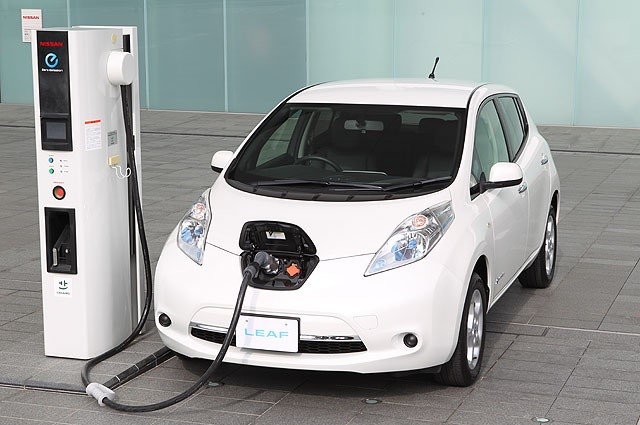Recently, Nissan Motor announced the recall of more than 23,000 Leaf electric vehicles in the United States, which has caused widespread concern about the safety of fast charging of electric vehicles. The recall concerns 2019-2020 Leaf models, primarily due to the potential risk of fire during fast charging. According to the investigation, there may be excessive lithium deposits in the battery packs of the affected vehicles, which increases resistance and causes state-of-charge fluctuations, increasing the likelihood that the battery will heat up quickly and catch fire during fast charging.
1. Technical details and security risks
Nissan said in a statement that the battery packs of the affected models may experience phenomena such as smoke, noise, interruption of charging, or abnormal odors when charging. These signs indicate that an abnormal reaction during fast charging could cause the battery to thermally runaway, which could lead to a fire. The United States National Highway Traffic Safety Administration (NHTSA) recall notice does not make it clear whether Nissan has long known that a customer's vehicle caught fire during fast charging due to a faulty battery. The lack of this information has raised doubts among consumers about the transparency and accountability of automakers.
According to statistics, in 2022, the sales of electric vehicles in the United States market have reached 940,000 units, a year-on-year increase of about 66%. However, with the rapid expansion of the market and the frequent occurrence of safety hazards of electric vehicles, consumers have begun to worry about the safety of fast charging technology. The recall not only involves 23,887 vehicles, including the Leaf's 60 kWh and 40 kWh models, but also challenges consumer trust in Nissan and its electric vehicle offerings.

Pictured: Nissan Motor announced a recall of more than 23,000 Leaf electric vehicles in the United States
2. Industry impact and market reaction
Nissan said affected owners will soon receive an official notification instructing them to avoid Level 3 fast charging until a permanent solution is in place. Nissan is currently developing a software solution that is expected to be launched in November this year. The recall quickly attracted media attention, and market analysts began to reassess the overall safety of the EV industry.
The recall may have a direct impact on Nissan's brand image and market share. According to the financial data for the second quarter of 2023, Nissan's electric vehicle sales in the North American market have reached 53,000 units, and the recall is expected to have a negative impact on the sales target in the second half of the year. In addition, the market's response to EV fast charging technology will also influence the strategic planning of other automakers.
3. Security solutions and future prospects
For Nissan, this recall is not only a severe test of product safety, but also a challenge to the company's ability to respond to the crisis. Nissan needs to take swift steps to address battery safety issues through software updates or other technical means to restore consumer confidence. At the same time, this is a wake-up call for the entire electric vehicle industry, and the safety and reliability of fast charging technology need to be paid attention to urgently.
In addition, Nissan's recall has also promoted innovation and improvement of related technologies. As an important part of electric vehicle safety, the battery management system (BMS) will help prevent similar incidents from happening again. Studies have shown that the use of advanced BMS technology can significantly reduce the risk of battery overheating and runaway, and improve battery safety. It is necessary for Nissan to strengthen cooperation with battery suppliers to improve battery quality standards and testing mechanisms.
4. Editor's point of view
In the context of the rapid development of the electric vehicle industry, fast charging technology provides great convenience to consumers, but also brings new safety challenges. The Nissan Leaf EV recall is a reminder that EV safety standards need to evolve in tandem with technological advancements. This requires not only self-monitoring and continuous innovation on the part of automakers, but also strict regulation and standard-setting by industry regulators. For consumers, this is also an opportunity to re-evaluate the safety of electric vehicles, and it is also a test of the trust of electric vehicle brands.
It is worth noting that as the electric vehicle market becomes increasingly competitive, consumer requirements for the safety and reliability of electric vehicles are also increasing. Automobile manufacturers need to take this opportunity to take the initiative to improve product safety standards and service quality, effectively protect the rights and interests of consumers, and establish a good corporate image.
5. Summary
The recall of the Nissan Leaf electric vehicle is a microcosm of the safety issue of fast charging for electric vehicles. As the electric vehicle market continues to expand, ensuring the safety of electric vehicles, especially fast charging, will become an important task for the entire industry. This requires automakers, suppliers, regulators, and consumers to work together to ensure that the safety performance of electric vehicles is fully guaranteed, thereby driving the healthy development of the industry. At the same time, major electric vehicle brands should also learn from this incident, pay attention to product safety, actively respond to potential risks, and maintain consumer trust and market stability.






